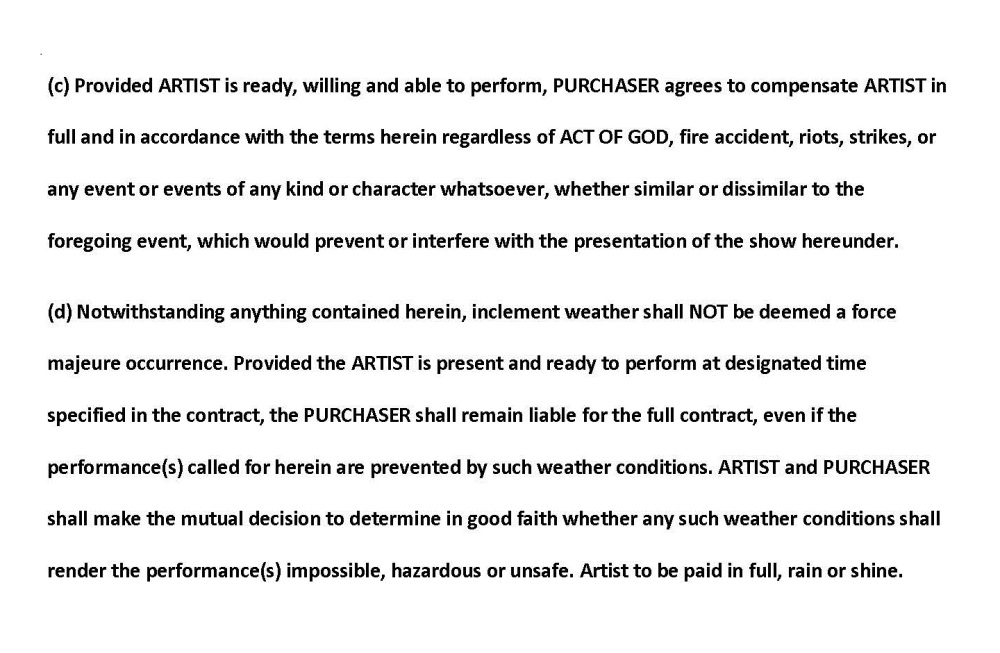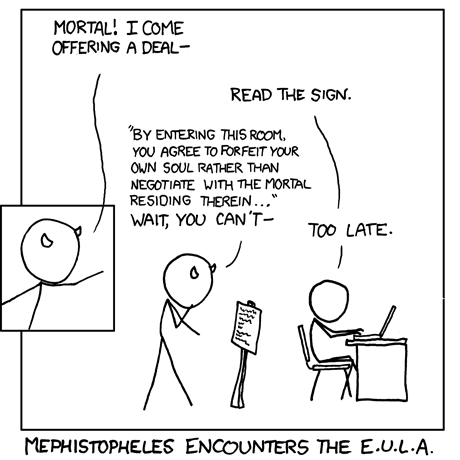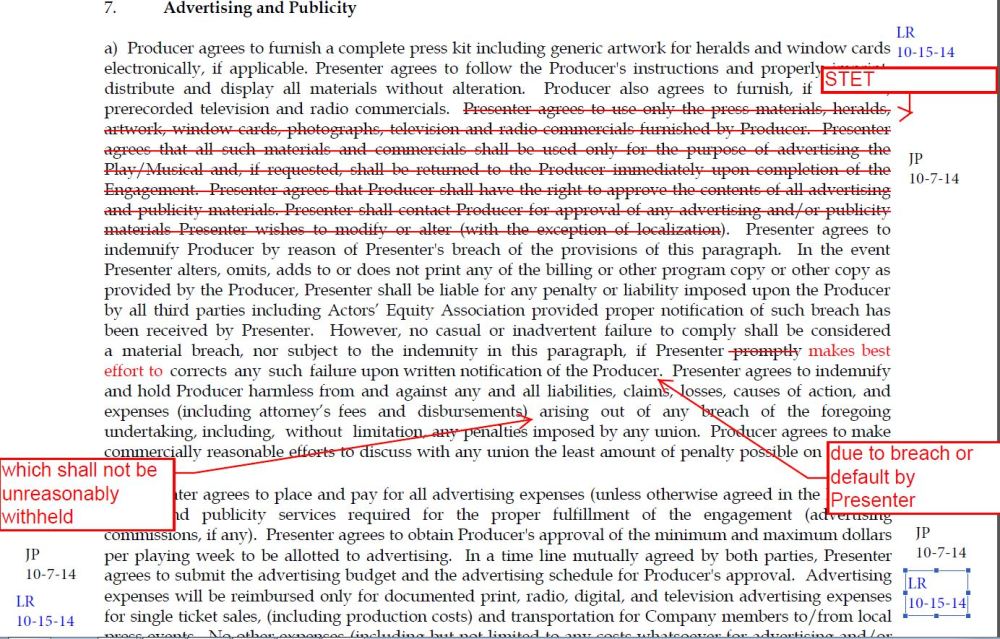Since you may be used to the “take it or leave it” conditions in the End User License Agreements (EULA) on every piece of software, social media platform and online service you come across in your daily life, you may be under the impression that you have to meet every condition in a performing artist’s contract.
This is generally not the case and unlike any EULA you may come across, you can not blithely take the tl;dnr (too long;did not read) attitude and flip to the bottom and sign. The consequences of doing so are far more likely and severe than diverging from Facebook’s ever revising conditions.
Contracts Are Like Dating Profiles
The reality is that contracts for performances are often a lot like dating profiles. There are non-negotiable conditions and then there are a lot of aspirational conditions reflecting an ideal scenario. Knowing which is which is a matter of experience, but you won’t get that experience until you start to ask.
For example, when we do Broadway shows, there are certain stage dimensions that the tour requires. Most of the time, we are pretty close, but if we aren’t we can still do the show. It is just that the production makes a decision about what set pieces will remain on the truck.
Similarly, nearly every Broadway show technical rider we receive asks for a 36 foot tall Genie lift and 2 sets of washers and dryers. We have a lift that can reach 19 feet and only one washer and dryer set. No one has ever balked about doing the show based on that.
There are some stages which will be too small to accommodate a show or lack sufficient equipment, but productions know that every venue is different and will undertake all sorts of contortions to make the show happen. You just need to make them aware of all the restrictions in advance.
There Are Things That Will Make Your “Date” Cranky
On the other hand, if they say you have to have 50 people with various qualifications onsite at 8:00 am to help unload and set up the stage, they mean it. They will either fine you for not having enough stagehands or stop constructing the set until enough people are present–often both.
These guys left a venue at 2 am the night before and arrived on your doorstep at 8 am and tonight they will be leaving at 2 am to start it all over again. They have little tolerance for situations which will make their job harder or more hazardous.
These conditions and penalty are usually in the contract and they aren’t going to be open its removal or alteration by too much.
Most Legalese=Stuff You May Most Want To Change
In terms of the legal content of the contract where it talks about liability, force majeure obligations and indemnifications, you might feel a little intimidated by the formality of the language and feel you have little recourse but to accept.
In fact, this is the place where you should be looking very closely to make sure you are not placed at a severe disadvantage. Most force majeure clauses I have seen are reasonable and equitable in acknowledging the impact of severe weather and other unavoidable emergencies.
Then there are some where you could have a meteor smash into your building and you would have to make payment in full plus an additional inconvenience fee.

Industry Standards
Be careful about taking a claim of “industry standard clause” at face value. Ask colleagues or post a question on a discussion forum if you are uncertain or confused about a section of a contract.
There are people working at standardizing performance contracts. The Broadway League has created a form booking contract that now seems to accompany every tour of a Broadway show we present.
Given that these contracts are among the longest I deal with, having nine pages which is the same from show to show is a great boon. You make your changes, save it and send it along with every new show. Then you are only left with combing through four-five show specific pages and 15-20 pages of the tech rider. That may seem like a lot of work still remaining, but the nine pages of the form booking agreement tend to have most of the complicated legal language.
This Is What Change Looks Like
Don’t get overly worried if your changes to a contract make it look like a rainbow spiderweb of insertions, deletions, reversals and counter signatures. It is not uncommon for a contract to look something like the one below.
This is just a visual example of what a marked up contract might look like only. Most of the change notation placements make little logical or legal sense. These are just illustrations of the type of notations that commonly appear on a contract and how crowded it might appear with deletions, additions and alternative language proposals.
The STET by the way means to reverse the change. It is often used to indicate that a person doesn’t agree with the change in its entirety and wants it restored to its previous state. (Which, it should be noted, may not necessarily be its original state.)
Keep Track of Changes
Every change that is made should be initialed and dated by both parties before either signs off on the contract. It is also wise to keep a clean copy of the original document and save each version of the contract as a separate file. It is often worth the cost of buying Adobe Acrobat so you can edit PDF documents electronically and easily reverse them. Otherwise you will go crazy trying to replicate all the changes for every iteration.
It is also advisable to insert the date and revision number into the footer of the contract if you anticipate multiple revisions. Again, so you can keep track of the most recent revision as well as the chronology of the revisions since opening and saving documents may cause older versions to have a more recent modified date than newer ones.
Inserting these footers is relatively easy to do in both Acrobat and Microsoft Word
Of course, there is no guarantee that your changes will be accepted. You should just feel you have an ability to negotiate reasonable conditions suitable to your situation.

